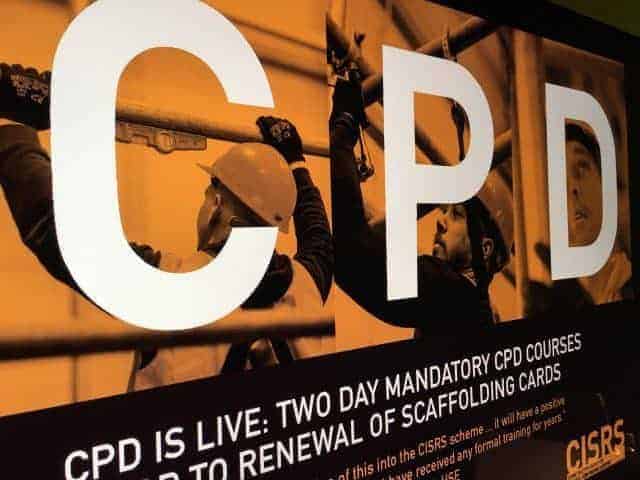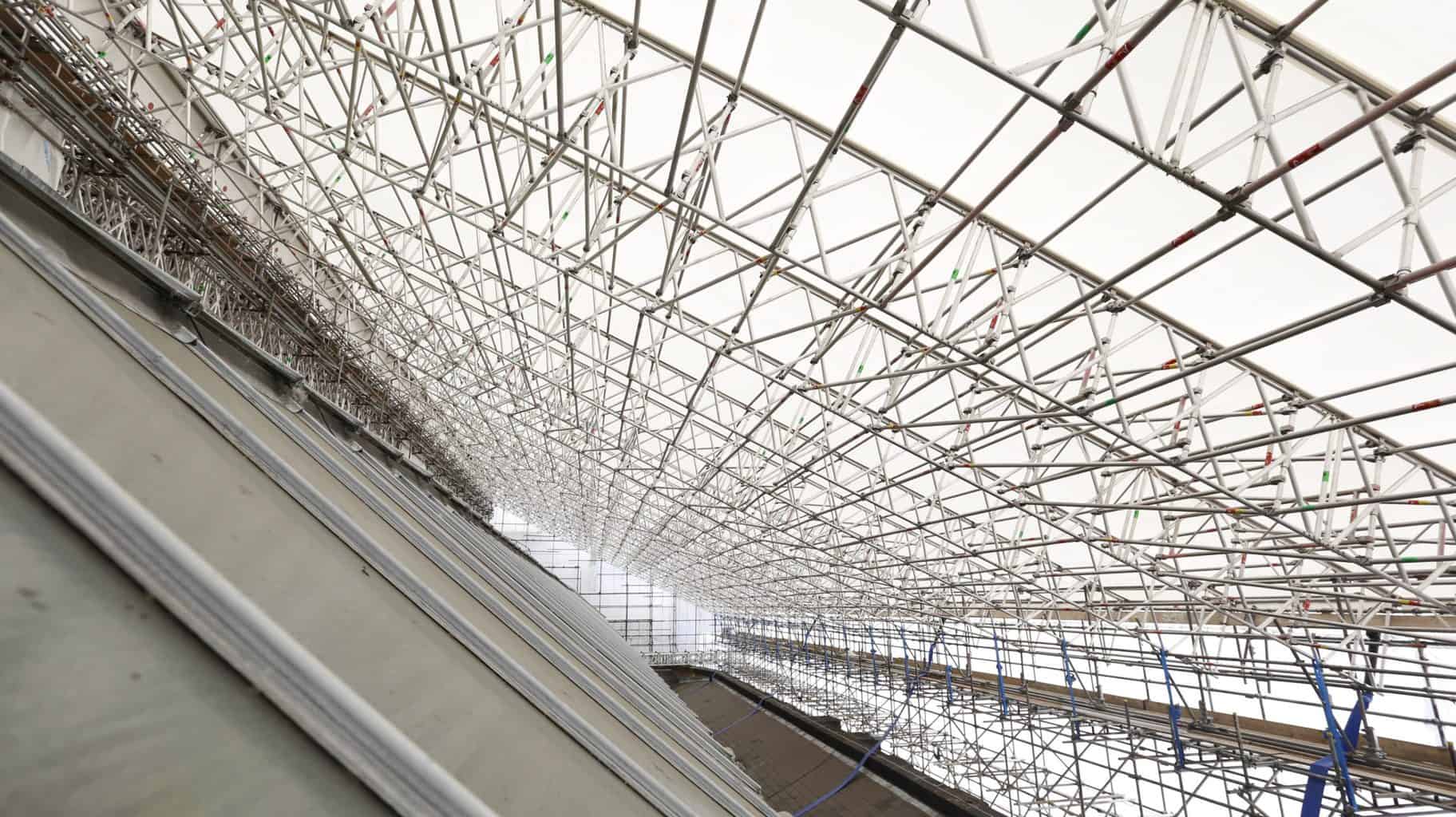CISRS has launched a short and anonymous CPD survey to gauge the views from the industry on its somewhat controversial Scaffolders refresher training.
Since CISRS introduced the Scaffolders CPD in July 2017, more than 60% of scaffolders have now completed the mandatory two-day course.
Scaffolders CPD was originally introduced following a request from the Health & Safety Executive to incorporate a more thorough card renewal process. A Working Party was set up to discuss and agree proposed content, duration and method of delivery, based upon previous discussions with Access and Scaffolding Industry Training Organisation (ASITO), NASC membership and third parties such as CITB, CSCS and the Unions.
CPD caused quite a stir when it was brought in but CISRS say despite the initial reluctance to its introduction, the course has proven very popular, with early feedback collected from delegates upon completion had been overwhelmingly positive, they said.
Having now passed the halfway point in the five-year CPD cycle, CISRS are very interested in hearing the views of those that have completed the training and the wider industry. CISRS is seeking anonymous views on the Scaffolders CPD, both in its current form and suggestions for what it may look like for futures programmes.
CISRS have said the responses to the survey will assist them when reviewing Scaffolder CPD.
Take part in the CISRS CPD survey here.
The CPD survey will remain open until February 28 2021.
Dave Mosley, CISRS Scheme Manager, said: “CPD/Refresher training as a scheme requirement caused quite a bit of controversy at the time of its introduction, but most in the sector now accept that as a Safety-critical trade, it makes sense to ensure that Scaffolders are kept up to date with changes within their industry.
“We want people to be honest in their responses as such the survey is anonymous. We do, however, want the comments to be constructive. Remarks like “it’s rubbish” will not help us identify areas that require consideration.
“If there are specific elements of the programme that someone has concerns with, we want them to let us know and if they can offer solutions to these issues they would be welcomed.”




